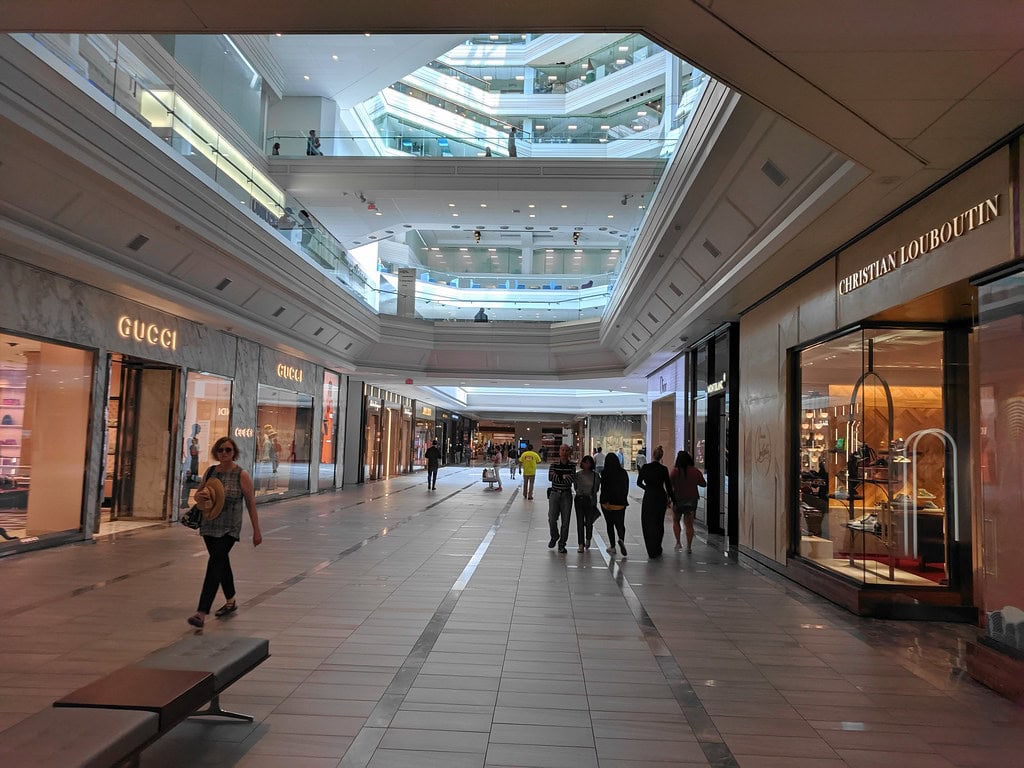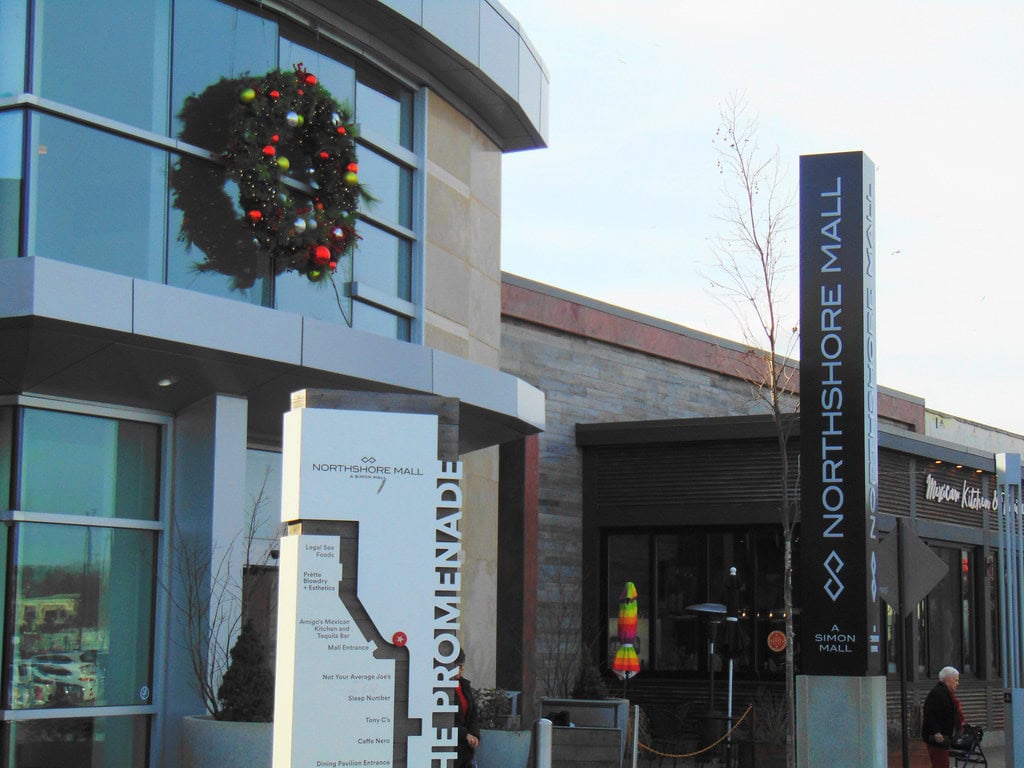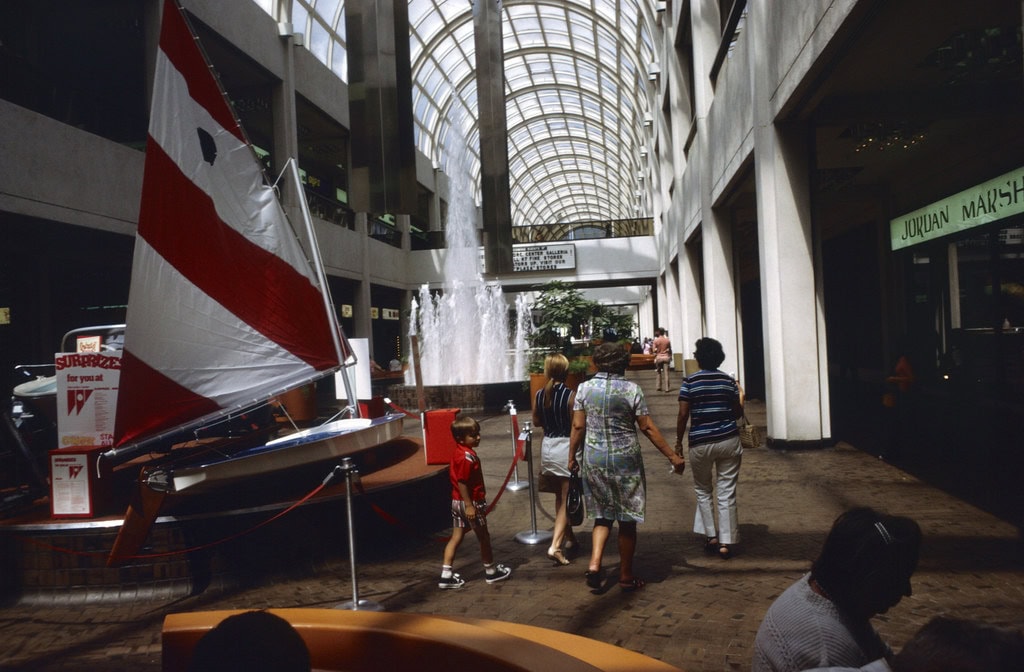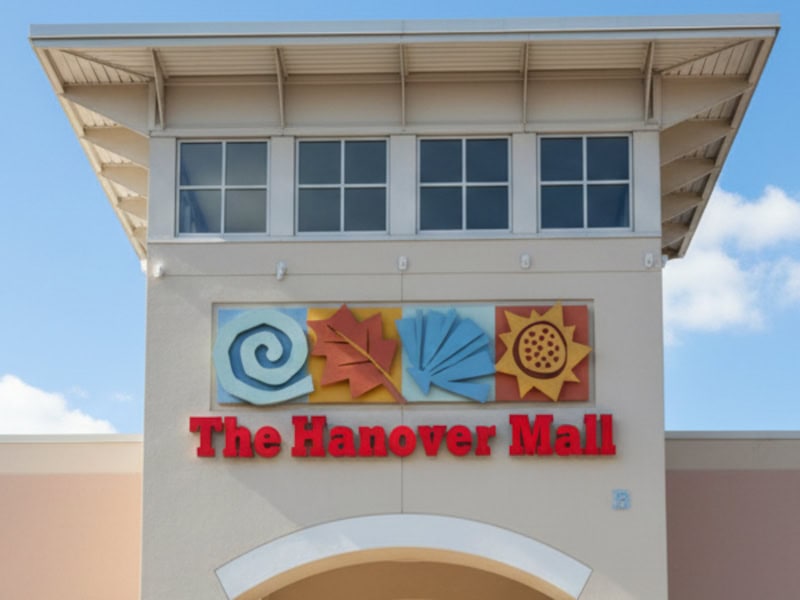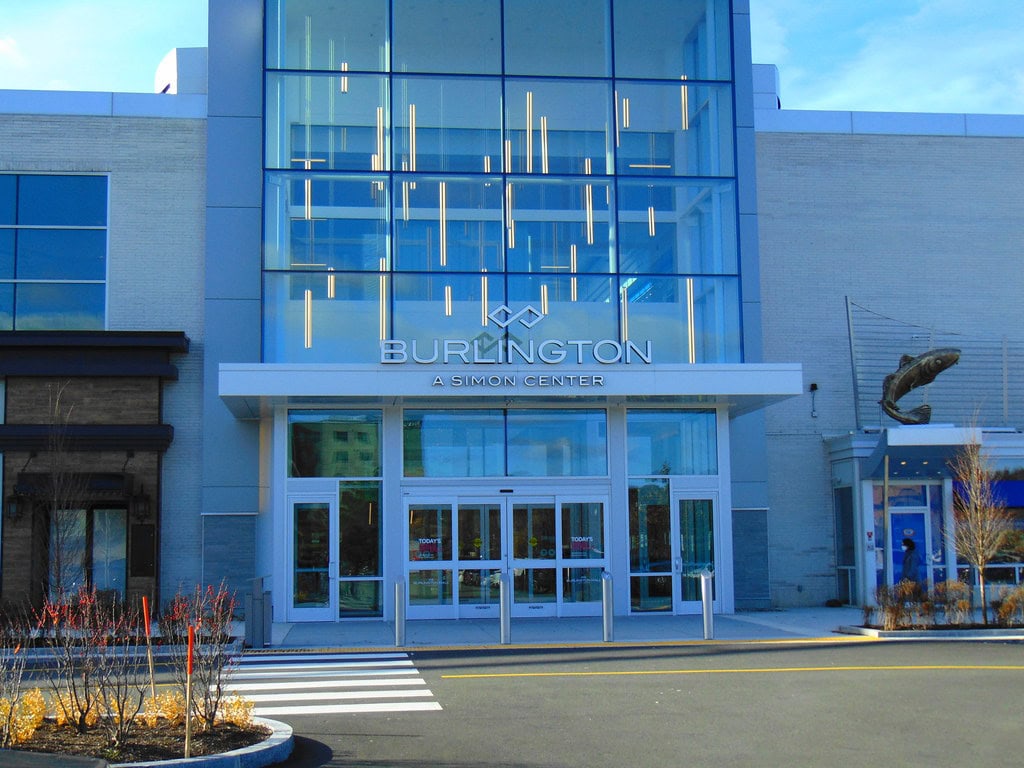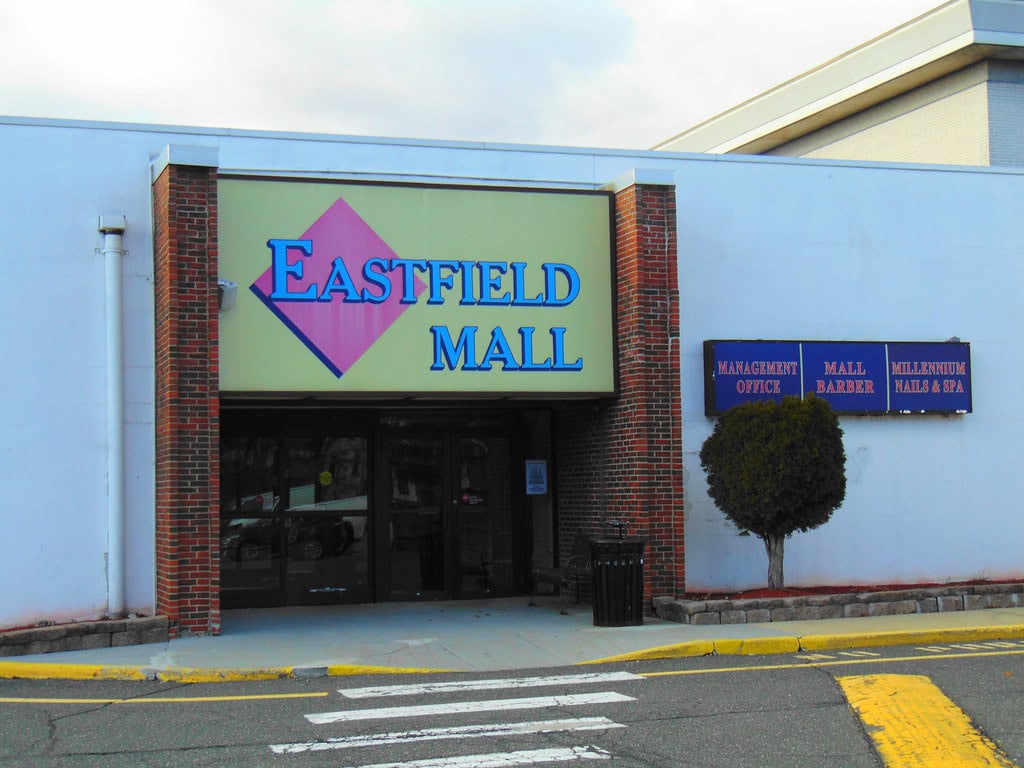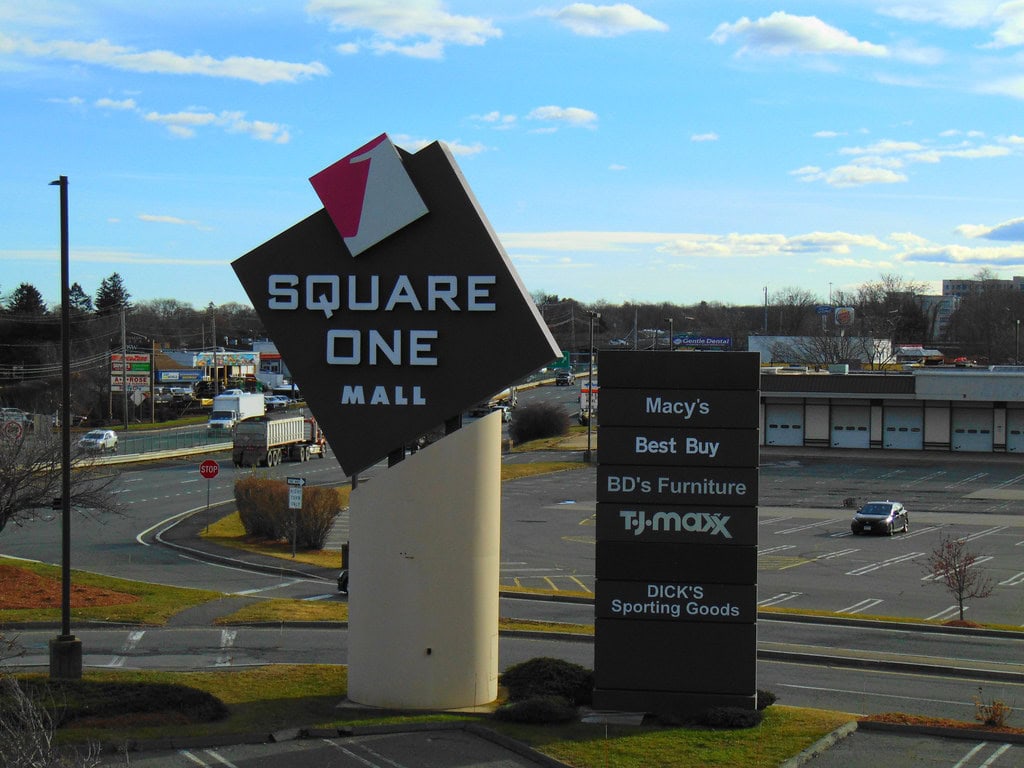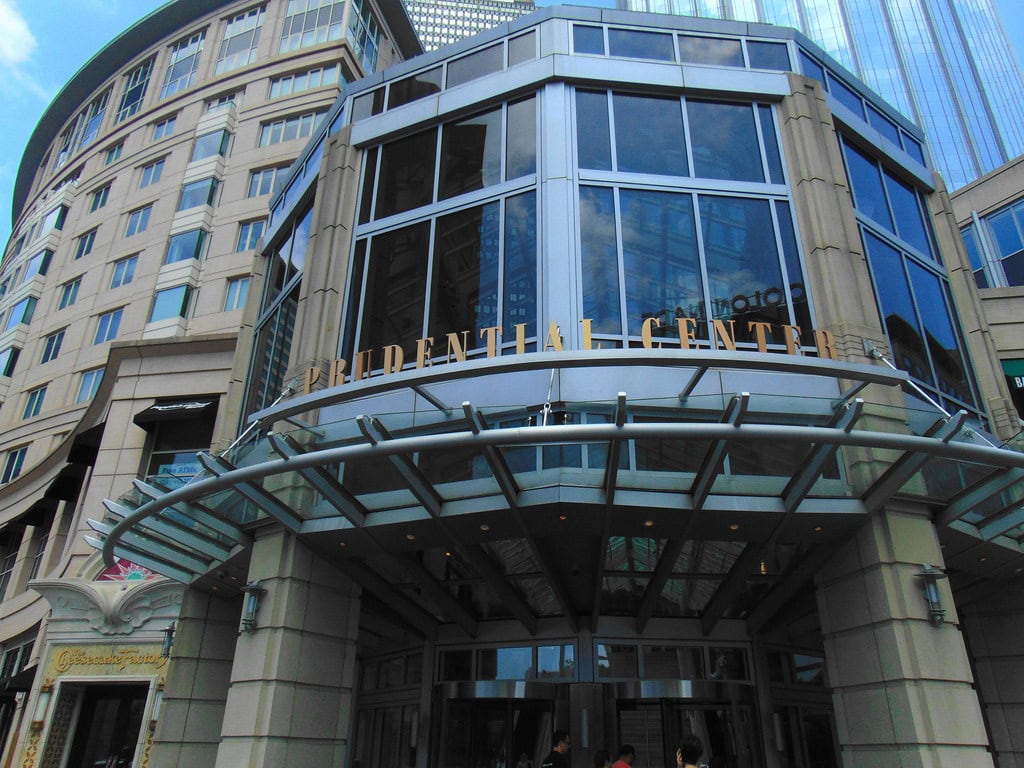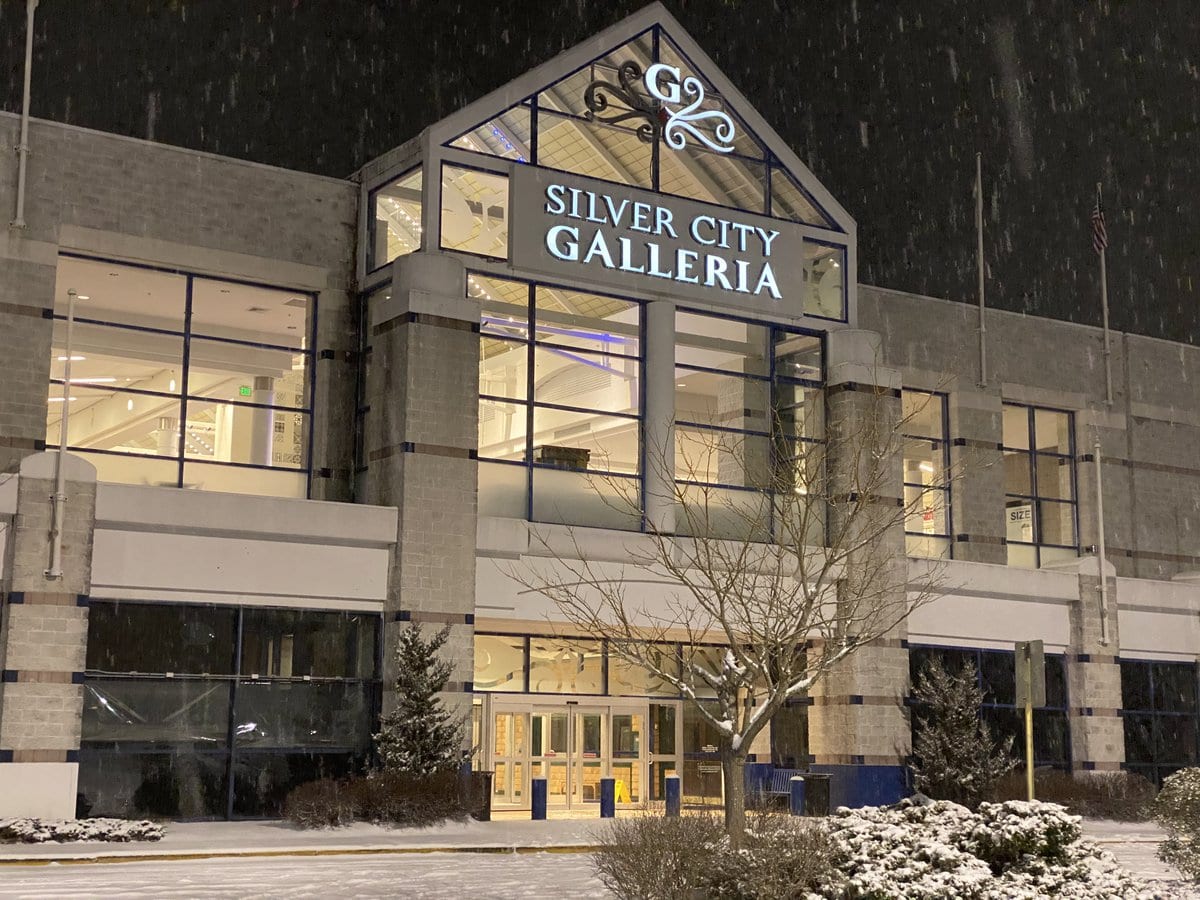Liberty Tree Mall: The Seed is Planted
It began with a quiet idea planted in the late sixties, when America was busy turning its suburban dreams into asphalt and shimmering glass.
Developers found their opportunity in Danvers, Massachusetts, just nineteen miles north of Boston's gold-domed State House.
Here, between farmland and highway, they planned a mall meant to stand for both American freedom and the thrill of consumption.
The Liberty Tree Mall broke ground in 1969, an ambitious experiment in value retailing on 83.5 acres of North Shore soil.
Developed by State Properties of New England (later New England Development), it was a cathedral of commerce wedged between two freestanding titans.
Ann & Hope, the Rhode Island discount pioneer, and Lechmere, the Woburn-based electronics chain that defined New England middle-class shopping.
The plan was simple: join the two under one roof and fill the middle with forty stores that promised everything from men's suits to paperback novels.
The doors opened on February 21, 1972, with a dedication the following day.
The tone was patriotic, almost theatrical.
The mall's name came from Boston's legendary Liberty Tree, a symbol of Revolutionary pride that gave the whole project a touch of civic virtue.
And there really was a tree, an aluminum sculpture by artist Albert Surman, salvaged from the 1964–65 New York World's Fair.
Shoppers walking through Center Court could look up at its metallic branches, a modernist tribute to freedom, commerce, and the shiny promise of aluminum.
A New Suburban Cathedral
In its early years, Liberty Tree Mall felt like an event.
There was Giblee's for sharp suits, Eva Gabor Wigs for a bit of glamour, The Paperback Booksmith for anyone who liked to read, and Liberty Tree Pharmacy for the everyday errands.
Outside, Finast handled the groceries, which suited the new suburban habit of doing everything in one place.
The mall had its own rhythm, its own light, its own predictable rush of Saturdays.
The sculpture stood in Center Court, catching the glare of the fluorescents.
Teenagers met there before movies, before dates, before they learned how to drive.
It was a landmark from another time, when a mall wasn't only where you bought things, but where you went to feel part of something.
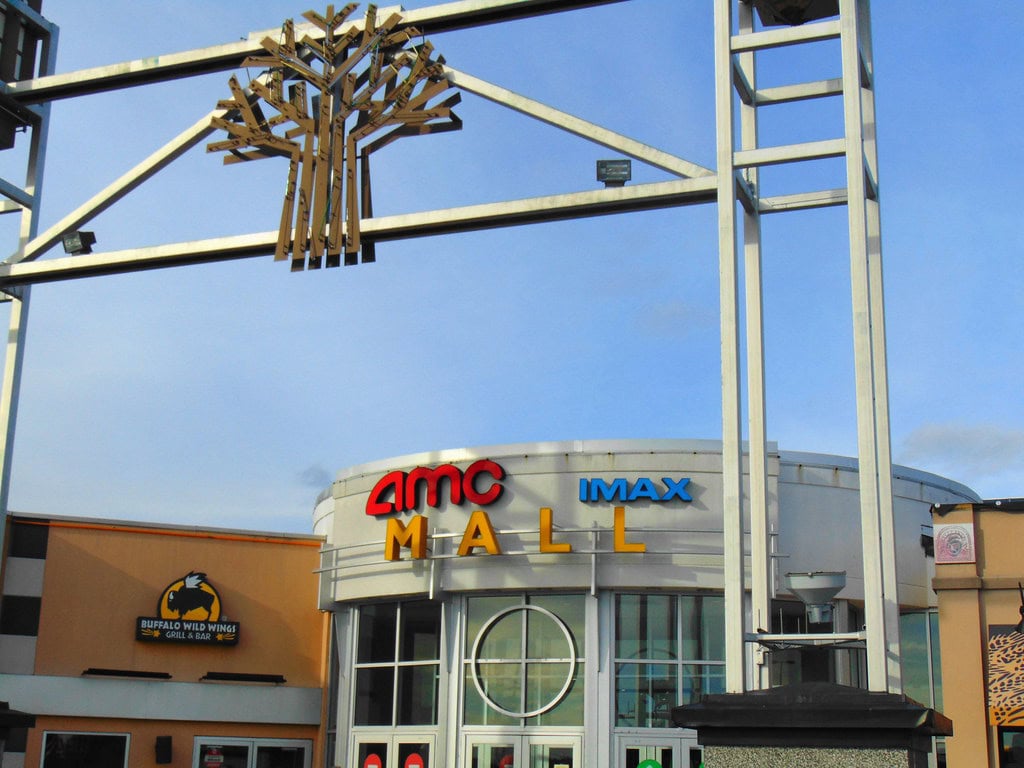
The Tree Takes Root
By the late seventies, the mall had taken hold in local life.
The first cinema, a freestanding Loews Theatre, opened on Christmas Day 1971, making Danvers a minor cultural destination.
Families went to the movies, grabbed sweaters on the way out, and crossed the wide, wind-swept parking lot to their cars.
In 1980, Liberty Tree Mall expanded northward by 100,000 square feet.
The addition included a new Marshalls and an International Food Pavilion that was cosmopolitan by Massachusetts standards: The Roast House, The Fatted Calf, Fairgrounds Snack Bar.
The mall was becoming more than a shopping center; it was a food court before food courts were clichés.
By 1984, Filene's Basement had joined the mix, affirming Liberty Tree's status as the North Shore's value hub.
A mile south, Northshore Mall went after the high-end crowd.
Liberty Tree Mall embraced the discount side of the family and never looked back.
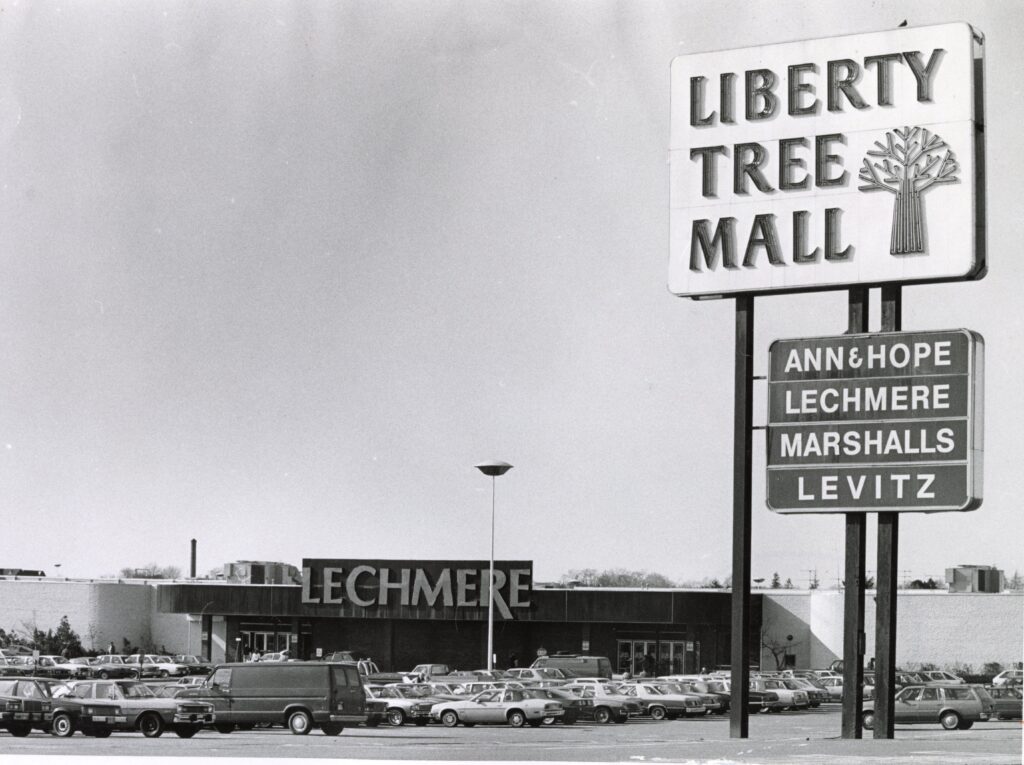
Expansion and Reinvention
In 1993, the mall went through another renovation, one that felt both sensible and a little ahead of its time.
The building stretched again, adding a bigger Marshalls, a new Sports Authority, and the first Old Navy in Massachusetts.
It was the nineties, the decade of denim and discounts. People wanted space to shop, not chandeliers hanging over them.
A few years later came the real shift.
On December 18, 1998, the Loews Liberty Tree Mall 20 opened with twenty screens and more than four thousand seats.
The smell of popcorn floated out into the corridors.
For the suburbs, it was a kind of spectacle: bright, noisy, and full of late-night energy.
The parking lot stayed lit long after the stores were dark.
The Age of Big Boxes
The late nineties were a tectonic shift.
Lechmere closed in 1997, and its vast shell was demolished to make way for the new retail pantheon: Best Buy in 1998, Target Greatland in 1999, followed by Dollar Tree and Staples.
The small stores began to orbit around the giants. The Liberty Tree Mall had officially entered the age of the big box.
Simon Property Group arrived at the end of that decade, buying about a 50 percent stake from New England Development for part of a $725 million portfolio deal.
The mall was now in corporate hands, its identity split between nostalgia and efficiency.
When Ann & Hope shuttered in 2001, Kohl's claimed the space.
A year later, the western half became a 91,000-square-foot Super Stop & Shop.
In those years, one could buy a washing machine, a shirt, a ham, and a Hollywood ticket without leaving the premises.
Convenience had reached critical mass.
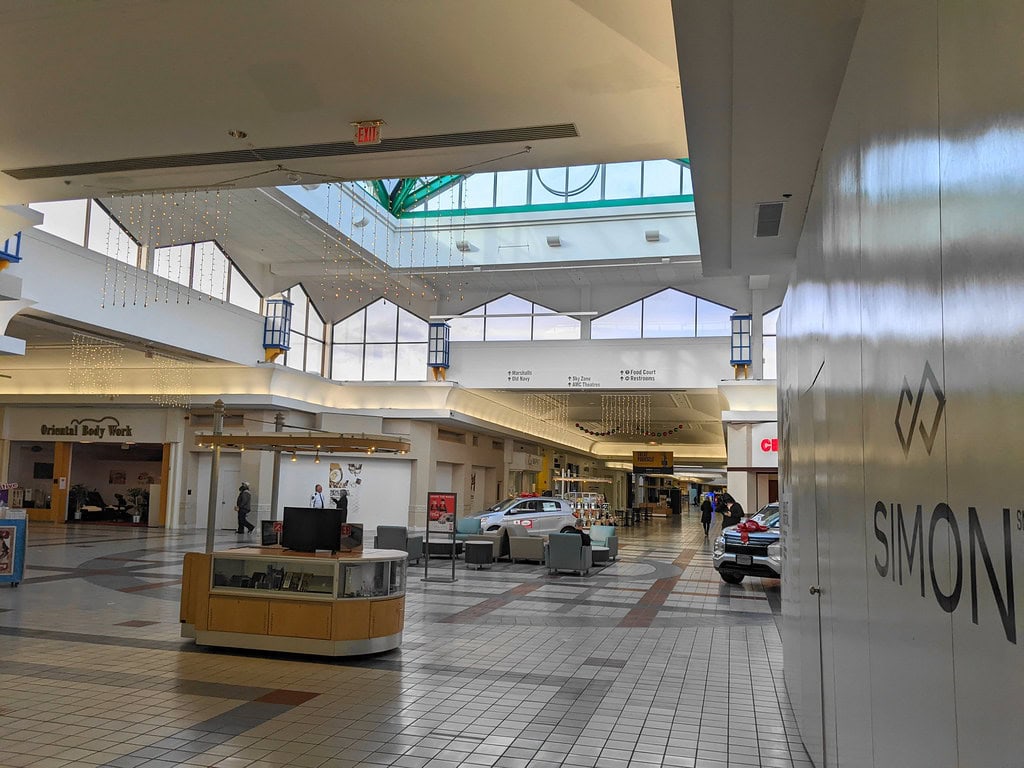
Decline and Rebirth
The Super Stop & Shop didn't last. It closed in early 2008, leaving behind the hollow echo of shopping carts.
In its place came Off Broadway Shoe Warehouse and Nordstrom Rack, both opening that November.
Luxury was back, albeit at a discount.
Then came Sports Authority's fall in 2016, a casualty of retail's great reckoning.
Its cavernous space soon found a second life as Sky Zone, an indoor trampoline park that swapped sneakers for socks and retail for recreation.
If malls were dying, Liberty Tree Mall decided it would bounce back, literally.
In 2017, Total Wine & More moved in, filling shelves with Riesling and bourbon.
It was a pragmatic pairing of commerce and pleasure, the kind of pivot that kept the mall relevant long after others faded into ghostly echoes of escalators.
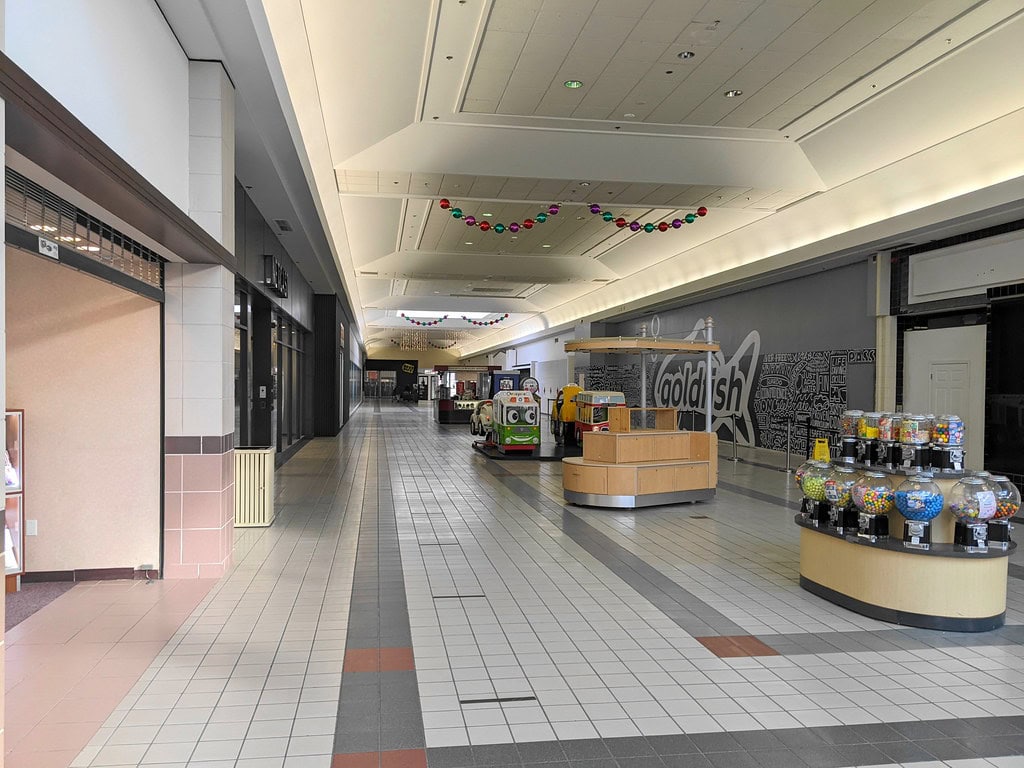
The Present Moment
Right now, the mall feels like a mix of every decade it's survived.
There's the AMC Theatres 20 with its blue IMAX glow. Kohl's still does its steady business.
Best Buy and Target anchor opposite ends, carrying the DNA of Ann & Hope and Lechmere.
Marshalls is still there, same as ever. Old Navy keeps selling jeans to everyone, the same way it always has.
Aldi showed up in 2023, moving into the old A.C. Moore space.
Even that small change was enough to remind people that the place still had a pulse.
Liberty Tree Mall isn't one story anymore.
It's pieces of different ones: part shopping center, part movie hub, part memory.
There's life here, even if it doesn't look like the life it had.
Within five miles, people still earn enough to keep it afloat, more than $130,000 on average.
That money is what gives the place its stubborn hold.
Ownership, like everything else about it, is split.
Simon Property Group manages the property and owns nearly half. Target controls its side.
New England Development kept a piece of what it built all those years ago.
It's a messy kind of partnership, but maybe that's fitting.
The modern mall isn't a single thing anymore; it's whatever works long enough to keep the lights on.
Looking Ahead
The metal tree that once stood in Center Court was removed decades ago, probably scrapped, though nobody can say for sure.
But the mall's story is not done.
In 2022, Simon quietly listed the property for sale, touting its "impressive anchor tenant line-up" and 41 acres of redevelopment potential.
The sale was later withdrawn, but the gesture spoke volumes: even Simon sees Liberty Tree's future not just in stores, but in mixed-use evolution: medical offices, hotels, maybe apartments.
The mall's strategic location near Route 128 keeps it relevant in a region where proximity still matters.
And unlike so many of its peers that succumbed to vacancy and nostalgia, Liberty Tree Mall remains almost 90 percent full.
Its adaptability is its inheritance. The same pragmatism that birthed it in 1969 now fuels its survival instinct.
If the suburban mall of the seventies was a temple to convenience, its 21st-century descendant is a monument to endurance.
Liberty Tree Mall keeps reinventing itself with a kind of stubborn Massachusetts practicality: less glamour, more grit.

